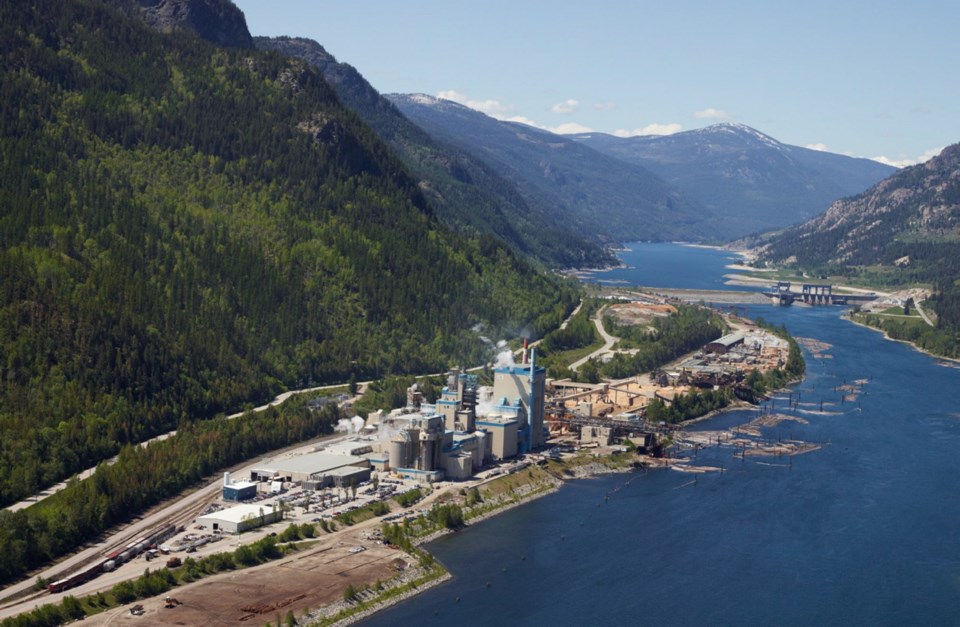A commentary by the president, CEO and director of Mercer International, one of the world’s largest producers of NBSK market pulp.
With sawmills closing, more effective government intervention is needed to maintain B.C.’s pulp supply for toilet paper.
Most people don’t give toilet paper a second thought, at least until it starts running out on store shelves. But with Canfor’s sawmill near Prince George the latest sawmill planning to close due to the COVID-19 downturn, British Columbians should know where that essential product comes from.
In a nutshell, sawmills provide affordable wood chips to pulp mills, and pulp is used to make toilet paper.
About a quarter of the world’s Northern Softwood Kraft (NBSK) market pulp supply used to make products like toilet paper comes from British Columbia. That makes us the continent’s largest market pulp producing region.
B.C. produces about 3.5 million tonnes of NBSK pulp annually, which is an essential ingredient in the production of paper-based items, including basic hygienic products that have been in short supply.
One pulp mill provides raw materials for hospital gowns and medical-grade face masks. As an added benefit — a co-product of NBSK production — our industry supplies biomass-based, green renewable electricity.
Unfortunately, with increasingly less wood fibre to keep B.C. pulp mills running, that critical supply chain is in serious jeopardy.
The recent government decision to simply defer unaffordable stumpage fees for three months — with interest — won’t stop the hemorrhaging. That new deferral measure is akin to trying to put out a forest fire with a watering can.
Better decisions need to be made in British Columbia to protect North America’s supply of NBSK pulp.
Before the pandemic, there was already a significant downturn in B.C.’s forest sector. Now, pulp mills are facing an even more acute supply chain challenge.
Lumber demand has dropped off precipitously, so B.C. sawmills have been forced to curtail production by more than 50 per cent, and stumpage deferrals will only kick the proverbial can further down the road.
Pulp mills depend on a steady supply of woodchips from sawmills, as well as logs from their harvesting activities, but those supplies are quickly depleting, and will continue to decline — even with these latest deferral measures.
There’s a solution to the fibre shortage that will keep British Columbians working: We must directly harvest logs for chipping.
Sounds simple, right?
In times of low saw log demand, other jurisdictions shift logs from saw mills to pulp mills.
But in B.C. that shift is prohibitive. It requires moving logs long distances and paying costly provincial stumpage fees, which are not affordable.
The smart solution requires collaboration on the part of communities, companies and the provincial government.
We still have markets for our products to keep our employees working, and are ready to put more people back to work in harvesting and transportation.
Castlegar is allowing heavier trucks on their roads temporarily. They are hoping the province will do the same to help alleviate the fibre supply shortage.
In addition, we are calling on the B.C. government to temporarily designate all logs harvested and delivered to pulp facilities as “pulp wood,” accompanied by lower stumpage fees to make the shift viable.
That way, pulp mills will have a fighting chance to continue operating while reducing unnecessary forest waste.
Other jurisdictions have successfully implemented these types of measures, and we can do it in B.C.
The chip shortage is upon us — B.C. paper mills have already announced closures. The province’s pulp mills thus far have announced pulp production curtailments totalling more than 103,000 tonnes. To put that into context, 103,000 tonnes of pulp can make about 400 million rolls of toilet paper, among other paper products.
These curtailments result in significant employment and economic losses. When looking at what is happening in the world today, this is one place where we can take action to minimize job losses and economic impacts.
We all hope lumber markets recover, and that sawmills and their employees go back to work, but given current economic conditions, and measures that come across as window dressing, we can’t rely on hope. Failure to take more effective actions now will result in more extensive shutdowns in the long run.
The time for action is now. B.C. has an ample supply of logs to harvest. We have an opportunity to put laid-off loggers and truck drivers back to work. We can keep pulp mills running, people working and regional economies supported, as well as maintain an essential supply of pulp at this critical and unprecedented time.



